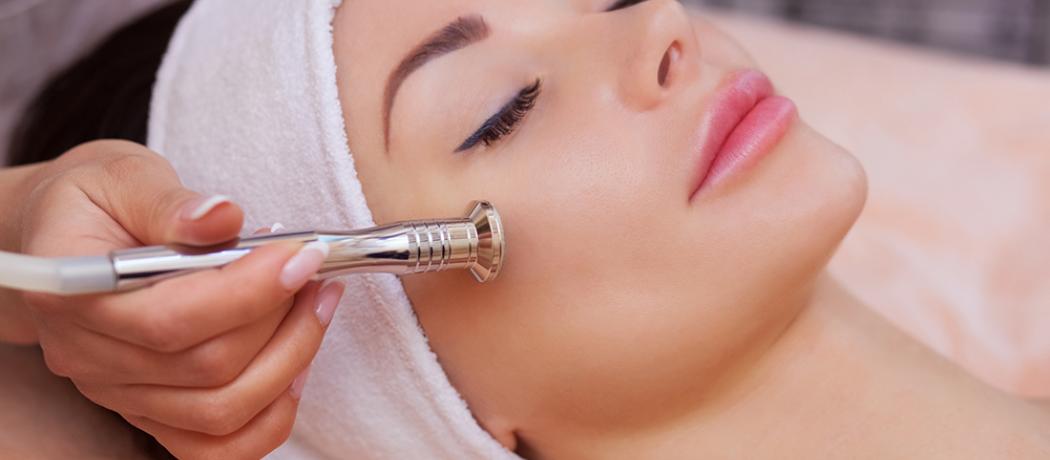Many family physicians have started adding office-based cosmetic procedures to their daily practice.[1] Several factors have led to a high demand for these additional services, including convenience for patients (wanting to access multiple ancillary services from one location), patients’ preference to have their family physician perform these procedure, physicians’ desire for variety in their daily practice, expanded revenue, and physicians’ enjoyment from the hands-on nature of treatments.[1,2] Some of these services include botulinum toxin injections, dermal fillers, laser photorejuvenation, laser hair removal, microdermabrasion, and chemical peels.
Surveys have shown that up to 22% of family physicians have chosen to incorporate some type of cosmetic procedure into their practice, with botulinum toxin injections being the most common entry point.[1-3] Botulinum toxin injections for facial wrinkles in the upper one-third of the face has predictable results, few adverse events, and is shown to be associated with high patient satisfaction.[2] However, examining botulinum toxins a little deeper, its widespread use and its constantly expanded therapeutic uses have raised safety issues.[4] In February 2008 and April 2009, the US Food and Drug Administration (FDA) published an early communication regarding botulinum toxin type A and botulinum toxin type B, informing physicians that these drugs have been associated with systemic adverse reactions, including respiratory compromise and death (resembling that seen with botulism) in which botulinum toxin spreads to the body beyond the injection site.[4] The serious adverse events identified in case reports varied from idiosyncratic adverse reactions like anaphylactic shock to dose-dependent adverse reactions like cervical kyphosis and botulism.[4] The reactions were attributed to various types and preparations of botulinum toxin; however, in most cases, causality with botulinum toxin was not established. Serious adverse events related to the cosmetic use of botulinum toxin include thyroid eye disease in a patient with Graves hyperthyroidism, sarcoidal granuloma, pseudoaneurysm of the frontal branch of the superior temporal artery, and severe respiratory failure.[4] Contraindications to botulinum toxin injection include keloidal scarring, neuromuscular disorders (e.g., myasthenia gravis), allergy to constituents of botulinum toxin product, unrealistic expectations, and body dysmorphic disorder.[2]
It is vital that physicians raise their awareness around several key issues including:
• Clarifying what cosmetic procedures are financially viable.
• Building professional/managerial/administrative agreement around the strategic vision.
• Committing adequate time and resources to consider different options in terms of which procedures to choose.
• Choosing procedures that meet clinical needs.
• Developing implementation strategies.
• Developing the right infrastructure, staff/physician training, and continuous evaluation of progress.
Careful planning and ongoing critical evaluation of progress are central to the successful implementation of office-based cosmetic procedures. Taking a lifecycle perspective on the implementation will, we hope, help family physicians to avoid some of the all-too-commonly encountered pitfalls and improve the likelihood of successful implementation and adoption. Visiting other health care settings that have implemented similar procedures can be helpful as well.
—Rajesh Nair, MD
Research fellow, Vancouver Island Health Authority
—Paul Bharaj, MD
Vaughan Skin Health Clinic, Vaughan, Ontario
References
1. Small R. Cosmetic procedures in family medicine. Am Fam Physician 2014;90:136-137.
2. Small R. Botulinum toxin injections for facial wrinkles. Am Fam Physician 2014;90:168-175.
3. American Society for Aesthetic Plastic Surgery. Cosmetic surgery national data bank statistics 2016. Accessed 4 February 2018. www.surgery.org/sites/default/files/ASAPS-Stats2016.pdf.
4. Yiannakopoulou E. Serious and long-term adverse events associated with therapeutic and cosmetic use of botulinum toxin. Pharmacology 2015;95:65-69.
This posting has not been peer reviewed by the BCMJ Editorial Board.

